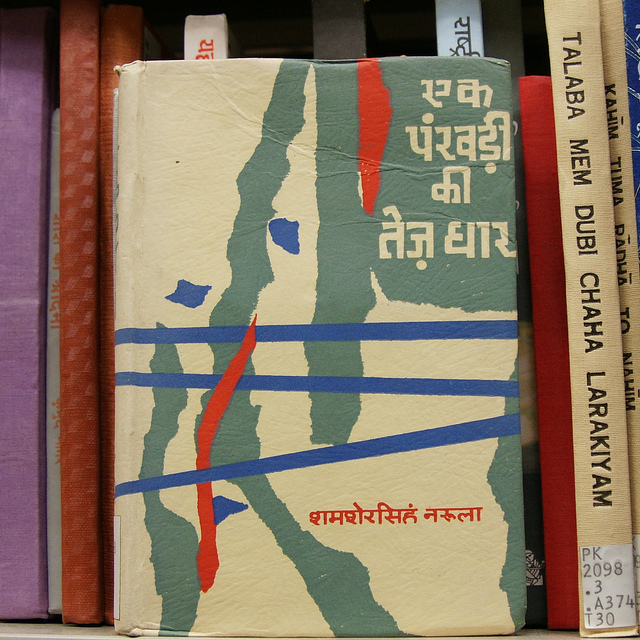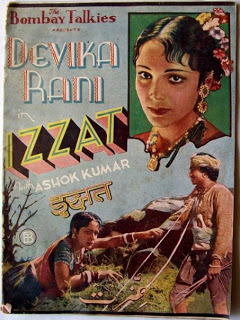Conversational Hindi: Common Questions and Answers Posted by Rachael on May 23, 2018 in Uncategorized
As per a recent request from a reader, this blog will be devoted to conversational Hindi. Specifically, it will concern questions and answers to common conversational topics. Thank you so much, devoted readers (especially the reader who suggested this topic), for following my blog and making awesome suggestions for future blogs! These questions and answers are adapted from those available in English on EspressoEnglish.
Introductory Questions / परिचयात्मक सवाल
-
What do you do? (for a living, profession, job, etc.)
In English, this rather vague phrase is oftentimes used colloquially. I decided to translate it into Hindi slightly differently so as to be more specific:
- आप काम के लिये क्या करती/करते हैं? / तुम काम के लिये क्या करती/करते हो?
(Aap kaam ke liye kyaa karti/karte hain / Tum kaam ke liye kyaa karti/karte ho?)
What do you do for work?
- आप क्या काम करती/करते हैं? / तुम क्या काम करती/करते हो?
(Aap kyaa kaam karti/karte hain / Tum kyaa kaam karti/karte ho?)
What (what kind of) work do you do?
- आप की नौकरी क्या है?
(Aap ki naukri kyaa hai?)
What is your profession/job?
These are just variations on the same question to give you some options. The only main difference is the use of the words काम/kaam (masc. noun), which is more general and can mean simply “work” (of any kind) vs. नौकरी/naukri (fem. noun), which refers more specifically to a profession or job.
Remember that both आप/aap (“you” honorific) and तुम/tum (“you” casual) are numerically plural, so even if you’re only speaking to one person, you would conjugate the verb as plural, as in: आप क्या करती/करते हैं or तुम क्या करती/करते हो? If you are actually speaking to more than one person, you can simply add लोग/log (people, person) after the second-person pronoun, as in: आप लोग क्या करती/करते हैं or तुम लोग क्या करती/करते हो? If the group is mixed gender, the default conjugation will be masculine plural.
Another point to keep in mind is that the formal आप/aap is for superiors at work and socially, such as someone elder to you; if you are unsure whether to use आप/aap or तुम/tum with someone who seems about the same age as you, err on the side of caution and use आप/aap. तुम/tum is a more casual pronoun for “you” that is best used with those you have met before who are friends or acquaintances.
Responses / जवाब
- मैं स्टूडेंट/छात्र/छात्रा हूँ / Main student/chaatra/chaatraa huun / I’m a student.
*Most people would just use the English word “student,” but generally with Indian pronunciation. छात्र (male student) and छात्रा (female student) are Sanskrit words used only in formal settings. विद्यार्थी/vidyaarthi is also an uncommon word for student, but you may see it on signs or hear it occasionally.
- मैं बैंक में काम करती/करता हूँ / Main bank me kaam karti/kartaa huun / I work in a bank.
- मेरे पास कोई नौकरी नहीं है आजकल / मैं काम नहीं कर रही/रहा (हूँ) आजकल / Mere paas koi naukri nahin hai aajkal / Main kaam nahin kar rahi/rahi (huun) aajkal / I do not have a job these days/ I’m not working these days.
- मैं अपनी बिज़निस चलाती/चलाता हूँ / Main apni business chalaati/chalaata huun/ I run my own business.
- मेरा retirement हो चुका है । मैं पहले engineer थी/था / Mera retirement ho chukaa hai. Main pehle engineer thi/thaa / I’m retired. I used to be an engineer.
*Another word for retirement is अवकाश/avkaash (masc. noun), but this can also mean a temporary vacation, so it might be best just to use the English word with Indian pronunciation to be more clearly understood. After all, the idea of a “retirement” is a very Western concept.
-
Are you married?
- आप शादी-शुदा हैं? / तुम शादी-शुदा हो ?
Aap shaadi-shudaa hain? / Tum shaadi-shudaa ho?
Responses / जवाब
- (जी) हाँ, मेरी शादी होने से दो साल हो चुके हैं / (Ji) haan, meri shaadi hone se do saal ho chuke hain / Yes (sir/ma’am), it’s been two years since I was married.
- नहीं, मैं तलाक-शुदा हूँ / नहीं, मेरी तलाक हो गयी / Nahin, main talaak-shudaa huun / Nahin, meri talaak ho gayi / No, I am divorced.
- मेरी सगाई हो गयी है, हमारी शादी अगले साल होगी / Meri sagaai ho gayi hai, humaari shaadi agle saal hogi / I’m engaged; our wedding will be next year.
- नहीं, लेकिन मेरा/मेरी बॉयफ़्रेंड/ गर्लफ़्रेंड है / Nahin, lekin mera/meri boyfriend/girlfriend hai / No, but I have a boyfriend/girlfriend.
- नहीं, मैं अकेला/अकेली हूँ / Nahin, main akelaa/akeli huun / No, I’m single.
*You can add जी/ji (a respectful suffix) to a statement of either yes (हाँ/haan, as in जी हाँ) or no (नहीं/nahin, as in जी नहीं) as a way to pay your respects to a stranger, someone who is elder to you and/or someone to whom you particularly want to convey respect for whatever reason. You wouldn’t use जी/ji with someone who you are addressing as तुम/tum.
-
Why are you studying Hindi?
- आप/तुम हिंदी क्यों पढ़ रही/रहे हैं/हो ?
Aap/tum Hindi kyoon parh rahi/rahe hain/ho?
- आप/तुम हिंदी की पढ़ाई क्यों पढ़ रही/रहे हैं/हो ?
Aap/tum Hindi ki parhaai kyoon parh rahi/rahe hain/ho? (Why are you doing Hindi studies?, literally)
Responses / जवाब
- मैं हिंदी पढ़ रही/रहा हूँ अपने काम/अपनी नौकरी के लिये / Main Hindi parh rahi/rahaa huun apne kaam/apni naukri ke liye (I’m studying Hindi for my job).
- मैं हिंदी पढ़ रही/रहा हूँ ताकि मैं सफ़र करते हुए दूसरों से बात कर सकूँ / Main Hindi parh rahi/rahaa huun taaki main safar karte hue doosro se baat kar sakoon (I’m studying Hindi so that I can talk to others while traveling).
- मुझे दूसरी भाषाएँ सीखने में बड़ी दिलचस्पी है / Mujhe doosri bhaashaae sikhne me bari dilchaspi hai (I have a great interest in learning other languages).
- मैं हिंदी पढ़ रही/रहा हूँ क्योंकि मैं इंडिया शिफ़्ट करना चाहूँगी/चाहूँगा / Main Hindi parh rahi/rahaa huun kyoonki main India shift karnaa chaahungi/chaahunga (I’m learning Hindi because I would like to move to India).
- मैं हिंदी पढ़ रही/रहा हूँ क्योंकि मैं इंडिया में पढ़ाई करने की सोच कर रही/रहा हूँ / Main Hindi parh rahi/rahaa huun kyoonki main India me parhaai karne ki soch kar rahi/rahaa huun (I’m learning Hindi because I’m thinking about studying in India).
-
Where/how did you learn Hindi?
- आप/तुम ने हिंदी कहाँ/कैसे सीखी ?
Aap/tum ne Hindi kahaan/kaise seekhee?
Responses / जवाब
- मैंने पाँच साल के लिये हिंदी की क्लासें ली थीं / Maine paanch saal ke liye Hindi ki classen li thi / I took Hindi classes for five years.
- मैंने (एक) गहन/बहुत मुश्किल क्लास ली / Maine (ek) gehen/bahut mushkil class li / I took an intensive/very difficult course.
- मैं अकेले हिंदी की पढ़ाई कर रहा/रही हूँ / Main akele Hindi ki parhaai kar raha/rahi huun / I’m studying Hindi on my own.
- मैंने फ़िल्मों और गानों से हिंदी सीख ली / Maine filmo aur gaano se Hindi sikh li / I learned Hindi from films/movies and songs.
- मेरे बॉयफ़्रेंड/गर्लफ़्रेंड ने मुझे हिंदी सिखायी / Mere boyfriend/girlfriend ne mujhe Hindi sikhaayi / My boyfriend/girlfriend taught me Hindi.
*The actual Hindi word for class, कक्षा, comes from Sanskrit and is rarely used in conversation. Of course, if you find yourself in an actual school, you may see the word on signs or hear teachers use it. Generally, however, using the English word “class” is good enough––just alter it to reflect its feminine plural form when you’re talking about more than one class (the reason for this is that कक्षा/kaksha is also a feminine word, so the English word, when used in Hindi, is also considered feminine: कक्षा/कक्षाएँ, क्लास/क्लासें). Lastly, if you’re still learning Hindi, you can say something like, मुझे हिंदी सीखते हुए पाँच साल हो गये हैं / Mujhe Hindi sikhte hue paanch saal ho gaye hain / I’ve been learning Hindi for five years (and I’m still learning…).

Build vocabulary, practice pronunciation, and more with Transparent Language Online. Available anytime, anywhere, on any device.








Comments:
Ian Rowcliffe:
Nice one, Rachael! I was very excited and interested to read this post. That said, it occurred to me that I don’t really know how to say thank you in Hindi – subject for another blog, perhaps – Of course, I know the two obvious words but they aren’t really situation specific – think ‘Different ways of saying thank you’ – my Indian friend produced a neat youtube on this with regard to English at Tefleton Post. So something along those line in Hindi could be very interesting. Otherwise, I am really looking forward to you extending this post to include other questions such as 5, 9, 10, 11, 14, 15, 16. That said, I loved the way you contextualised the approach for Hindi. Thanks a bunch (of flowers in your case):-) Ian
Rachael:
@Ian Rowcliffe Glad you liked it! Sure thing––I can include a section on saying “thank you” in Part 2 of this series! Thanks for reading 🙂